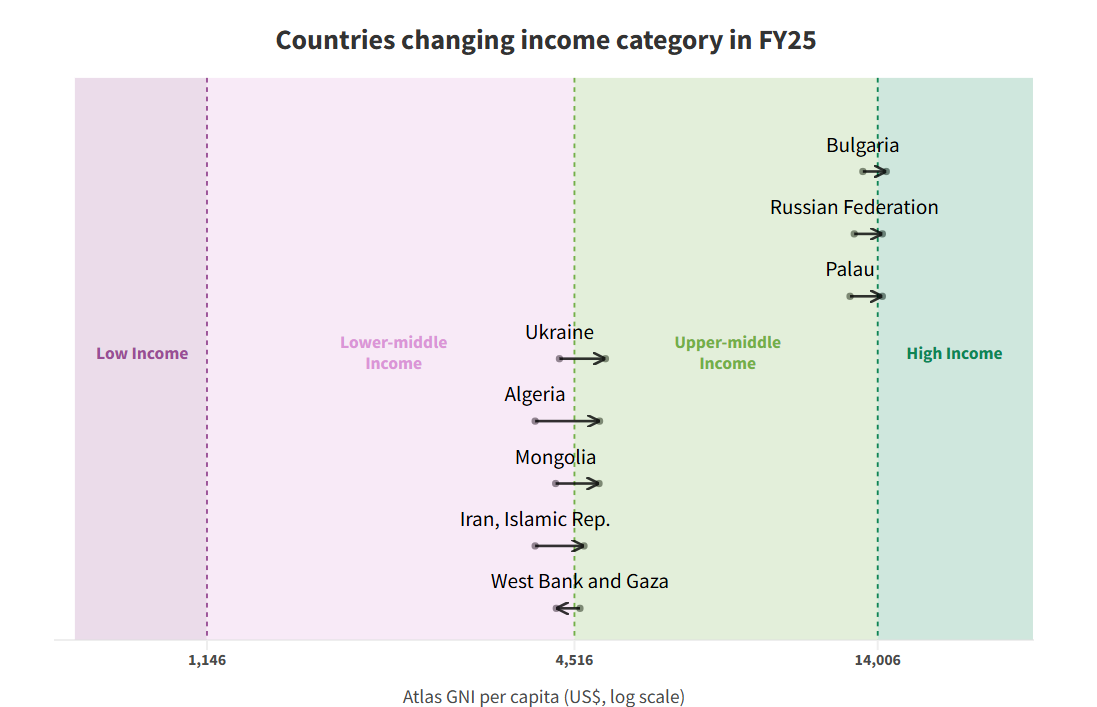PREVIOUS
Income Classification Update for FY26
August 9 , 2025
12 hrs 0 min
23
0
- The World Bank Group classifies countries into four income groups: low income, lower-middle income, upper-middle income, and high income.
- Classifications are based on Gross National Income (GNI) per capita in US dollars using the Atlas method.
- These classifications are updated annually on July 1 using data from the previous year.
- Income classification influences a country’s development level and eligibility for development aid and concessional financing.
- Since the late 1980s, the number of low-income countries has declined while high-income countries have increased.
- In 1987, 30 percent of countries were low-income and 25 percent were high-income.
- East Asia and the Pacific reduced low-income countries from 26 percent in 1987 to 3 percent in 2024.
- Europe and Central Asia had no low-income countries in 1987 or 2024.
- Latin America and the Caribbean saw zero low-income countries in 2024, and high-income countries increased from 9 to 46 percent.
- Middle East and North Africa’s low-income countries increased from 2 to 3, with high-income countries rising to 35 percent.
- South Asia’s countries moved from all low-income in 1987 to lower-middle and upper-middle income by 2024.
- Sub-Saharan Africa’s low-income countries dropped from 75 percent in 1987 to 45 percent in 2024 with one country reaching high income.
- Classification thresholds adjust yearly for inflation using the Special Drawing Rights (SDR) deflator.
- In FY26, Costa Rica moved from upper-middle income to high income after strong growth averaging 4.7 percent over three years.
- Cabo Verde and Samoa had advanced from lower-middle income to upper-middle income due to growth in tourism and remittances.
- Namibia was dropped from upper-middle income to lower-middle income due to slower GDP growth and population revisions.

Leave a Reply
Your Comment is awaiting moderation.


